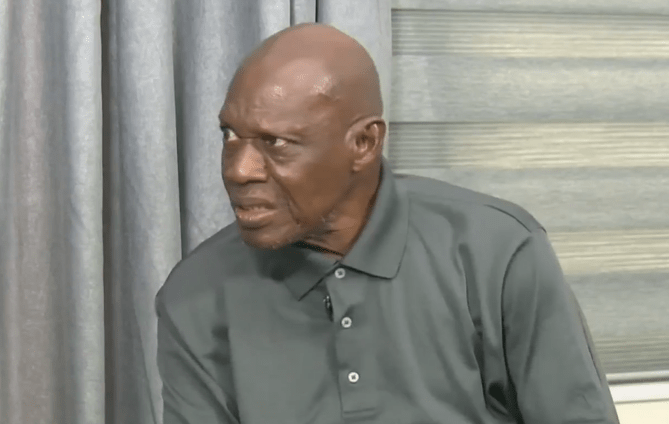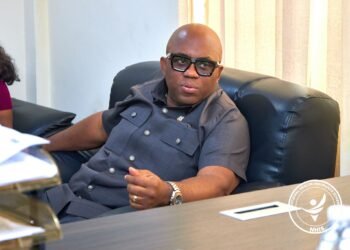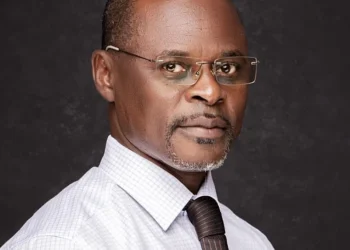Retired Supreme Court Justice William Atuguba has expressed serious concerns about the recent appointments to Ghana’s Superior Court.
Justice Atuguba, a respected figure in the legal community raised alarms over what he perceived as a deviation from established norms and protocols in the judicial selection process. According to him, some senior judges, who are more qualified and experienced, are being overlooked in favor of candidates with lesser credentials for reasons unrelated to merit.
Speaking on this matter, Justice Atuguba hinted at the possible subversion of the appointment process, suggesting that it is being influenced by factors outside of accepted practices. He warned that this trend could undermine the credibility of the judiciary, which plays a crucial role in upholding democracy and ensuring justice in the country.
“The thing with this country is, people just love to take the power and subvert it,” Justice Atuguba said, lamenting the current state of judicial appointments.
“They take the power and subvert it. That’s what is happening. They feel that they have the power; that is not the power. In the appointment system, why must some senior and more competent justices be left while others with less experience are posted to the highest court? What is it about?”
William Atuguba, Retired Supreme Court Justice
Justice Atuguba did not mince words when addressing the issue. He questioned the rationale behind ignoring senior judges with impeccable records and vast experience, only to appoint individuals who lack comparable qualifications. According to him, this move threatens the quality of justice at the highest levels.
These remarks from the former Justice come at a time when several appointments made by President Nana Addo Dankwa Akufo-Addo to the country’s apex court. While these appointments are a regular feature of governance, Justice Atuguba’s comments suggested that the process might be straying from its foundational principles.
His statements underscore a growing concern within some legal and political circles that recent judicial appointments are being influenced by political and personal connections, rather than objective criteria like competence, seniority, and adherence to the rule of law.
Electoral Commission’s Stance on Voter Register Raises Further Concerns

Beyond judicial appointments, Justice Atuguba also raised alarms about the Electoral Commission’s (EC) recent refusal to allow a forensic audit of the voter register. In his view, this decision undermines the principles of transparency and accountability, which are critical to the credibility of elections.
“The EC man was saying there would be no further exhibition for now. And when again? Would there be any further exhibition before the election and within adequate time for people to raise matters?”
William Atuguba, Retired Supreme Court Justice
He emphasized that it is the duty of the Electoral Commission, under the Constitution, to ensure that elections are conducted transparently and that all issues related to the voter register are addressed in a timely manner.
“They have to let the people know how they have addressed them,” he said, calling for greater clarity from the Commission.
Justice Atuguba, who presided over the nine-member panel of judges that adjudicated the landmark 2012 Election Petition, has a deep understanding of the importance of electoral fairness. His concerns come at a time when the integrity of the upcoming elections is under intense scrutiny, both by local and international observers.
Justice Atuguba’s critique extended beyond the judiciary and the Electoral Commission, touching on what he sees as a more profound issue in Ghanaian governance—the misuse of power. He lamented that those in authority often equate power with personal control, rather than using it to serve the public interest.
“We just love power. We just look at it. I am in charge, and that’s the end, and that is not constitutionalism,” Justice Atuguba remarked.
He stressed that power should not be an end in itself, but a tool for upholding the law and ensuring justice for all.
“Unless we get out of that mindset and say that the law is not any private person’s property; it is the most public, the most binding system of doing things; everybody is under that.”
William Atuguba, Retired Supreme Court Justice
His statements served as a reminder that constitutionalism—the principle that power must be exercised according to the law and for the common good—is at the heart of a functioning democracy.
Justice Atuguba’s call to uphold these principles in the judicial appointment process, electoral procedures, and governance in general, resonates as a powerful message in Ghana’s ongoing democratic journey.
READ ALSO: Sonnie Badu Opens Up On Battling Depression in the US



















